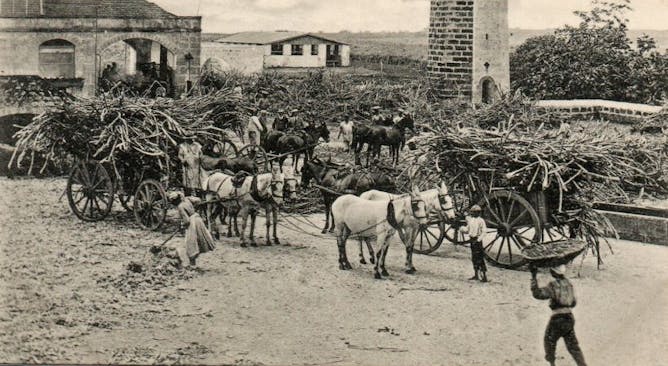|
We’ve become numb to some of Donald Trump’s most outrageous statements and that’s why they should always be scrutinized. Today in The Conversation Canada, J.M. Opal of McGill University takes on one of the president’s most vile racist tropes: “Name one country run by a Black person that’s not a shithole.” Prof. Opal looks at how the country of Barbados, the small island nation that’s “a remarkable example of what some Black people endured and overcame in the New World.”
Tiff Macklem, the Dean of the Rotman School of Management at the University of Toronto, makes the case that now that Canada has negotiated a new North American trade pact, it’s time to “get serious” about trade diversification – specifically by turning our eyes toward Asia.
The recent U.S. midterm elections sent a record number of women to Washington. In analyzing the election results, Elizabeth Goodyear-Grant of Queen’s University and Amanda Bittner of Memorial University look at the influence of gender when it comes to how we vote.
Do Canadians care about biodiversity loss and, if so, are they willing to pay the costs necessary to reverse biodiversity loss? Andrea Olive of the University of Toronto looks at the complex issue of putting a cost on conservations.
And finally…the arrival of winter also raises the risk of depression. Matt Strauss of McMaster University, who practises critical-care medicine, discusses the impact of antidepressants with the rise in suicides and gives advice on non-drug treatments to help battle depression.
Regards,
|

Barbados was ground zero for racism and slavery but due to the resilience of the islanders, it is a model country of democracy. Here a sugar cane harvest post card, circa 1927.
W. L. Johnson & Co. Ltd., Barbados. No. 15
J.M. Opal, McGill University
U.S. President Trump's former attorney revealed some ugly racist things his client has said. One of them - once again - speaks of "shit-hole" countries. We need to counter this false idea.
|

Cargo containers from Asia are seen in the port of Vancouver in 2015. Canada needs to diversify its trade beyond the United States and increase our links to rapidly growing emerging market economies, particularly in Asia.
(Shutterstock)
Tiff Macklem, University of Toronto
Canada needs to diversify its trade beyond the United States and increase links to rapidly growing emerging market economies, particularly in Asia, despite the "anti-China" clause in the USMCA.
|

Michigan Democrat Rashida Tlaib became one of two Muslim women to be elected to Congress in the recent midterm elections. How voters gender-identify has an impact on how they vote.
(AP Photo/Paul Sancya, File)
Elizabeth Goodyear-Grant, Queen's University, Ontario; Amanda Bittner, Memorial University of Newfoundland
Men and women are not unified voting blocs. We must consider how voters identify themselves in terms of gender to truly understand how women and men think about politics.
|

The burrowing owl was once a common sight on the prairies. Now Saskatchewan and Alberta have fewer than 1,000 breeding pairs.
(Shutterstock)
Andrea Olive, University of Toronto
Carving up ecosystems or opening them to development puts the survival of species at risk.
|

Antidepressants bring in almost $17 billion a year for the pharmaceutical industry, and yet science shows their benefit to be small. Natural therapies such as diet, exercise, light therapy and cognitive behavioural therapy are just as effective.
(Shutterstock)
Matt Strauss, McMaster University
These four “natural” therapies for depression have rigorous, peer-reviewed scientific studies to support their use.
|
Arts
|
-
Christopher Murray, University of Dundee
Remembering the co-creator of Spider-Man, The Hulk, Fantastic Four and all the rest.
|
|
Environment + Energy
|
-
David Bowman, University of Tasmania
The California fires are just the most recent in a series of major wildfires. Together, they suggest we need to look at alternative ways of living with fire.
|
|
Science + Technology
|
-
Jay Sanjayan, Swinburne University of Technology
Pouring concrete into formwork limits the creativity of architects to build unique shapes. 3D printing could change that.
|
|